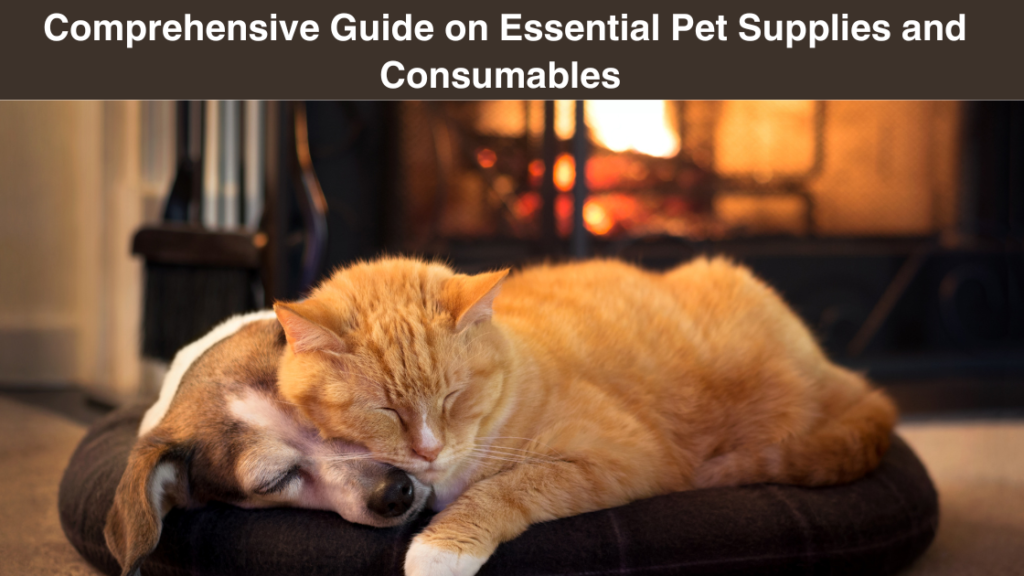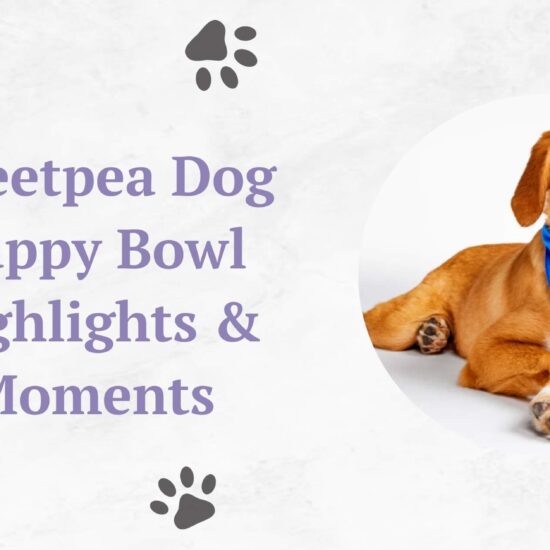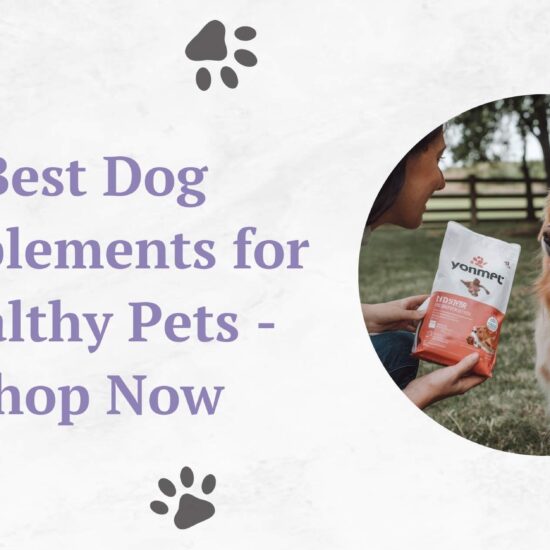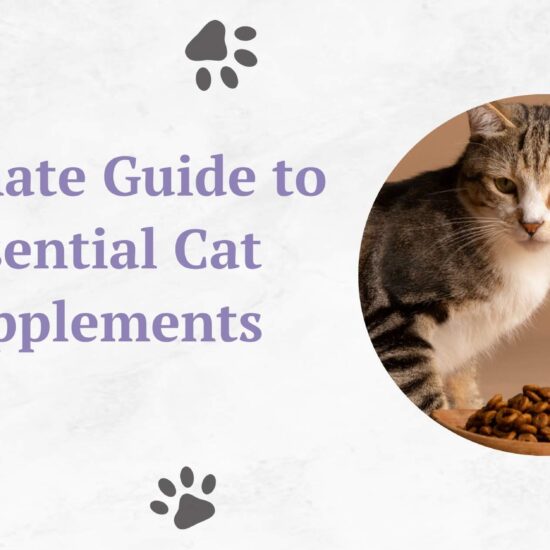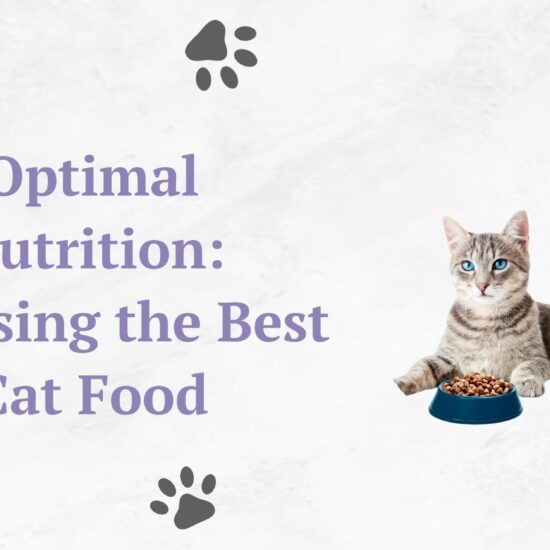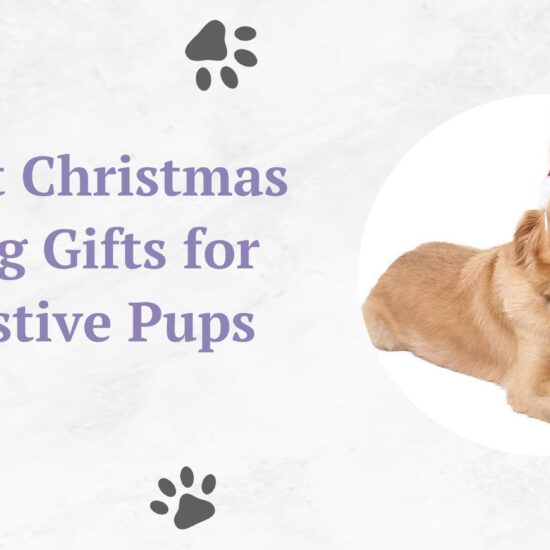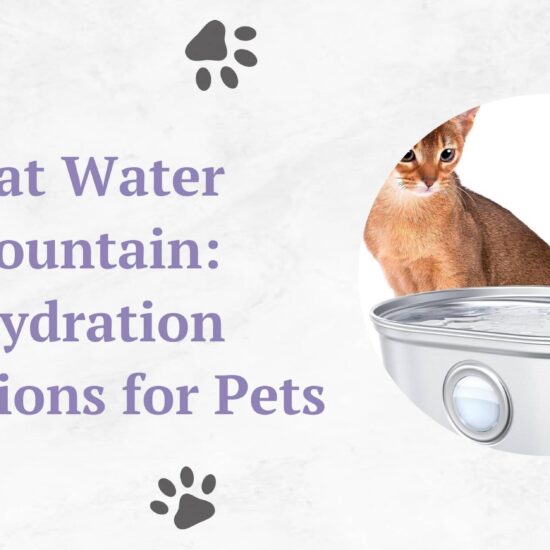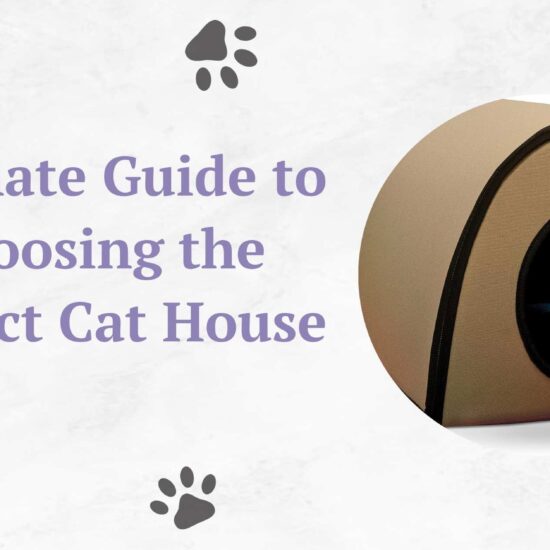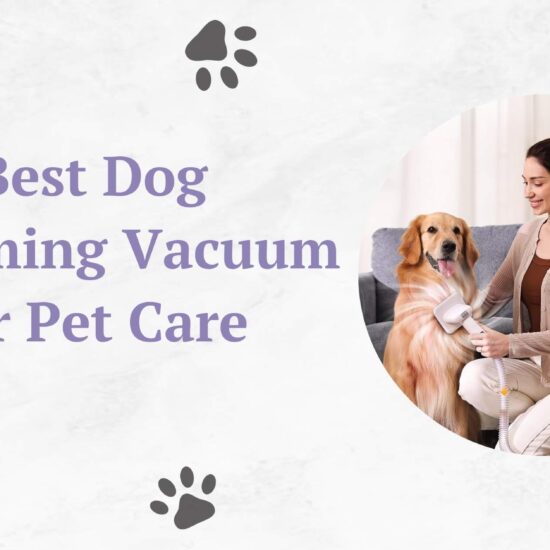Pets are more than simply animals; they are valued members of our households. Whether you have a devoted dog, a graceful cat, a chatty parrot, or any other type of pet, their well-being and happiness are paramount. Pets, like humans, require certain supplies and consumables to live healthy and comfortable lives.
Introduction
The purpose of this article is to provide complete information on essential pet supplies and consumables to assist pet owners in ensuring the well-being of their furry or feathered pets.
Selecting the Essential Pet Supplies and Consumables
Let us share valuable insights on essential pet supplies to make your furry friend’s life comfortable and pleasant.
- Bowls for Food and Water
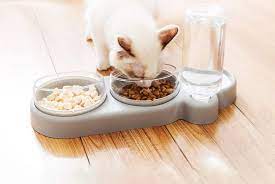
When it comes to choosing the correct food and water bowls for your pet, it’s important to remember that these seemingly insignificant items have an important role in your pet’s general health and well-being. Here’s a closer look at the elements to think about when making this choice.
Material is Important: The material of your pet’s bowls can have a big impact on their health. The most prevalent materials are stainless steel, ceramic, and BPA-free plastic. Because of its longevity, simplicity of cleaning, and resistance to bacteria, stainless steel is an ideal choice. Because it does not retain odors, it is great for pets with sensitive noses. Ceramic bowls not only provide an elegant touch to your pet’s dining area, but they are also hefty, making them less likely to tip over. They are, nevertheless, breakable if dropped. If you choose plastic, make sure it is BPA-free and of excellent quality, as certain plastics can harbor bacteria in scratches, which can be harmful to your pet’s health.
Size Matters: The bowls you purchase should be appropriate for your pet’s needs. Consider larger and deeper bowls for dogs, especially larger breeds, to easily fit their food and drink needs. This eliminates spills and allows your dog easy access to their food. Cats and smaller pets, on the other hand, will benefit from smaller, correctly sized dishes to prevent overfeeding and make dining more pleasant for them.
Cleaning Ease: Maintaining appropriate hygiene is critical for your pet’s health. Choose easy-to-clean bowls that are ideally dishwasher safe. This is critical for preventing the accumulation of germs, mold, and residue, which can be harmful to your pet’s health. Cleaning your pet’s dishes on a regular basis ensures that they are a safe and enticing place for them to eat.
- Animal Food
Choosing the correct pet food is a critical decision that has a direct impact on your furry friend’s general health and well-being. Pets, like humans, require a balanced diet that is suited to their species, age, and special dietary needs. Let’s take a closer look at the many varieties of pet food and their applicability for various scenarios:

Dry Food: Dry kibble is a popular choice as the essential dog and cat supplies due to its convenience and oral health benefits. The mechanical motion of chewing dry food aids in the removal of tartar from your pet’s teeth. Many renowned pet food brands have formulations tailored to particular life stages and health problems. There are dry diets for pups, adult dogs, and elderly dogs, each having a distinct blend of nutrients customized to their specific needs. Ingredients such as high-quality proteins, vital vitamins, and minerals are frequently used in these formulations.

Canned Food: Canned pet food, commonly known as wet food, is a moist and tasty substitute for dry kibble. It is very enticing to finicky eaters and provides additional hydration. Wet food is especially beneficial for cats, who frequently do not drink enough water. Wet food can be a lifeline for cats that have urinary tract disorders since it helps them stay hydrated. It comes in a variety of textures, ranging from pâté to chunky, to accommodate your pet’s taste preferences.
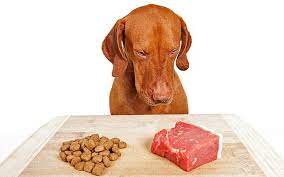
Raw Food: Some pet owners believe that a raw food diet is more natural and healthier for their pets. A raw food diet consists of uncooked meats, bones, and organs, similar to what a wild animal would eat. While raw diets have apparent benefits, they can be difficult to balance and may pose health hazards. Before making the switch to raw feeding, it is critical to conduct extensive research and speak with a veterinarian. A well-balanced raw diet must suit your pet’s nutritional requirements while also addressing the safety risks associated with raw meat eating.
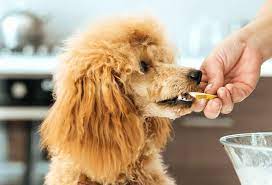
Specialty Diets: Specialty diets may be required for pets with specific nutritional demands, such as allergies, sensitivities, or medical issues. These diets are meticulously designed to treat certain health conditions. There are hypoallergenic diets for pets with food allergies, as well as therapeutic diets for illnesses like kidney disease or diabetes. Consult your veterinarian to identify the appropriate diet for your pet’s needs and to ensure they get the nutrients they require while maintaining their health.
- Collars, Harnesses, and Leashes
Collars, leashes, and harnesses are essential dog and cat supplies for pet owners, providing important functions during walks and outdoor outings. Each of these items is critical to your canine companion’s safety, control, and comfort.
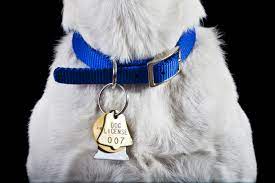
Collars: Collars are an essential canine accessory, primarily used to store identifying tags. It’s critical to strike the perfect balance between snugness and comfort when selecting a collar. A tight collar can cause discomfort or even harm, while a slack collar can slip off. Make sure you can comfortably insert two fingers between the collar and your dog’s neck to ensure it’s secure but not restrictive. Collars come in a variety of forms, ranging from basic buckle collars to quick-release choices. The option is dependent on your dog’s disposition, as quick-release collars provide an extra degree of security in case your dog becomes entangled in something.
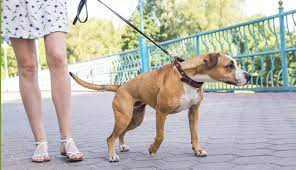
Leashes: Leashes are available in a range of materials, lengths, and styles, giving dog owners a myriad of options. As one of the essential pet supplies and consumables, the size, activity level, and training requirements of your dog should all be considered while selecting a leash. A properly fitting leash extends your control, allowing you to keep your dog safe and well-behaved. Smaller dogs may benefit from a lighter, shorter leash, while larger, more active dogs may benefit from a more durable, longer leash. Retractable leashes, for example, offer greater flexibility during walks. However, in order to be utilized securely, they must be properly trained and controlled.
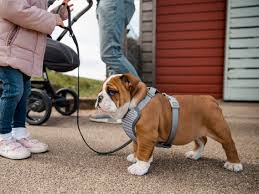
Harnesses: Harnesses are a more comfortable and secure choice for dogs, particularly little breeds or those with respiratory concerns. Harnesses uniformly distribute pressure across the dog’s body, reducing choking and damage, especially during walks when the dog may pull or grow excited. When selecting a harness, make sure it fits snugly but not too tightly. Consider the sort of harness that will best suit your dog’s demands, since there are back-clip, front-clip, and no-pull harnesses available, each built for varying levels of control and training.
- Mattresses and Beds
Providing a comfy and friendly space for your beloved pet to rest and sleep is an important component of their well-being. Pet beds and bedding are essential dog and cat supplies that provide not just comfort but also a sense of security, which can improve your pet’s quality of life dramatically. Here’s a deeper look at the various alternatives for dogs and cats:
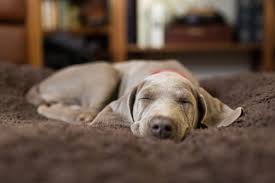
Dog Beds: Because dogs range in size from little Chihuahuas to massive Great Danes, finding the right-sized bed is critical. A well-fitted bed allows your pet to stretch out luxuriously and accommodates their size. Dogs, like people, have varying sleeping patterns. Some people prefer to cuddle up, while others prefer to spread out. Your dog’s preferences should be considered when selecting a bed. Orthopedic beds provide additional support and relief from discomfort for senior dogs or those with joint concerns. Memory foam or other supportive materials are used in the design of these mattresses to ease pressure on achy joints.
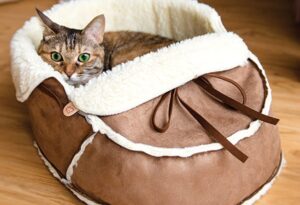
Cat Beds: Cats are well-known for their preference for warm, comforting environments, and cat beds respond to this desire. Cat beds are available in a range of styles, from basic mats to sophisticated hideaways. Some beds have soft, fluffy interiors, while others are enclosed, giving many cats a sense of protection. Cat beds are more than simply a place for cats to sleep; they are also secure havens for them to relax, groom, and study their environment.
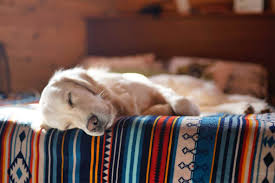
Bedding Material: The bedding material you choose is critical to the comfort and hygiene of your pet’s bed. Look for beds that have removable and machine-washable coverings. This function allows you to quickly maintain cleanliness and deal with any accidents, shedding, or odors. Beds with removable covers are especially useful if your pet spends time outside and may bring dirt or allergens into his or her sleeping area.
- Crates and Transporters
Crates and carriers are adaptable essential pet products that serve numerous purposes in assuring your pets’ safety, comfort, and well-being. Let us look at the important roles they play:
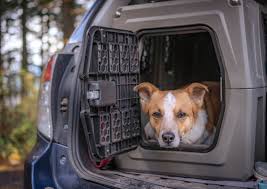
Crates: Crates are quite useful for pet owners since they provide a safe and secure environment for your beloved friend. They fulfill a number of functions:
Crates are essential for housetraining pups and teaching dogs proper behavior. When used correctly, a crate may transform into a safe and comfy den where your pet can relax.
Crates provide a regulated and secure environment when needed. This is especially useful if you need to confine your pet for their protection, such as during thunderstorms or when you have visitors in your home.
Crates can also be used as travel containers, offering a familiar and safe environment for your pet when you’re on the go. A crate can reduce your pet’s anxiety and secure their safety during a car journey or a flight.
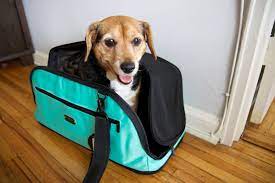
Carriers: Carriers are essential dog and cat supplies for safely and comfortably carrying your pet. Carriers are classified into two types:
- Soft Carriers: These lightweight carriers are great for tiny pets, kittens, and small dogs. They frequently have mesh sides for ventilation and visibility and plush sides for your pet’s comfort while traveling.
- Hard-Sided Carriers: These carriers are stronger and more stable, making them suited for larger animals. They are commonly employed for flight travel or when additional security and protection are required.
- Grooming Products
Grooming products are an important component of essential pet supplies and consumables that not only improve your pet’s appearance but also greatly contribute to their overall health and well-being. Your pet’s breed, coat type, and special requirements will determine the grooming supplies you need. Here’s a thorough list of grooming necessities for your furry or feathered companion:
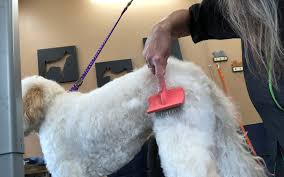
Brushes and Combs: Choosing the appropriate brush or comb for your pet’s coat type is critical. Different coats, whether long, short, curly, or wiry, necessitate the use of different grooming products. Brushing your pet’s fur on a regular basis not only keeps it looking good, but it also serves an important role. It keeps your pet from matting, which can be irritating and even painful. Brushing also distributes natural oils, encouraging healthy skin and fur. A slicker brush, for example, is appropriate for long-haired breeds, while a bristle brush may be more acceptable for short-haired pets.
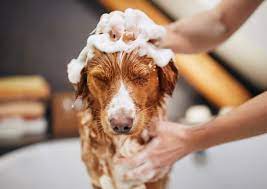
Shampoo and Conditioner: Select pet-specific shampoos and conditioners to meet your pet’s special needs. Follow the bathing schedule that your veterinarian has recommended to avoid drying out your pet’s skin. The state of your pet’s skin and coat will determine the shampoo and conditioner you use. Hypoallergenic shampoos are available for pets with sensitive skin, and medicated shampoos can aid with specific skin diseases. Remember to fully rinse to avoid skin irritation and to ensure that your pet’s coat is clean and free of residue.
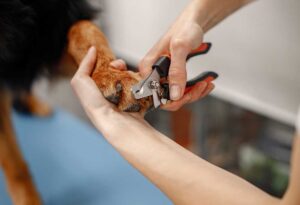
Nail Clipper/Cutter: Regular nail clipping is essential for your pet’s comfort and health; hence, nail clippers are essential dog and cat supplies. Pain and trouble walking might result from overgrown nails. Human clippers can cause injuries to pets; therefore, use pet-specific clippers. Some clippers include a safety guard to keep the nail from being clipped too short, which can be painful for your pet. If you’re unclear about the right approach, seek advice from your veterinarian or a professional groomer.
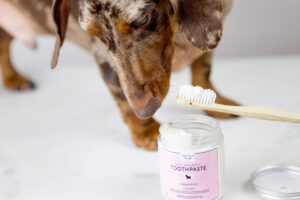
Toothbrush and Toothpaste: Dental care is essential for pets because dental problems can cause pain, infections, and other health issues. Brushing your pet’s teeth on a regular basis can help prevent these problems. Because human toothpaste can be hazardous to pets, use a toothbrush made for them and toothpaste formulated specifically for their requirements. It is critical to establish a regimen for your pet’s oral health early in their lives, but it is never too late to begin. Dental chews and toys meant to promote oral health can also be used in addition to brushing.
- Toys and Enrichment
Toys and enrichment items are important not just for pleasure and play but also for improving your pet’s mental and physical health. These essential pet supplies and consumables provide mental stimulation, exercise, and, most importantly, a source of joy and participation in the lives of your pets. Here’s a closer look at the many types of toys and their advantages:
Interactive toys are an excellent method to keep your pet cognitively bright and engaged. These toys, often dispensing goodies or requiring problem-solving skills, encourage your pet to think and strategize. Puzzle toys that deliver goodies when manipulated by dogs test their cognitive ability. Treat-dispensing balls or puzzle feeders provide both physical and mental excitement for cats. These toys are especially good for pets who spend a large amount of their day alone, since they help relieve boredom and anxiety.
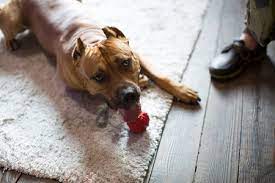
Chew Toys: Chew toys are great for dogs, but many other animals also enjoy them. Dogs have a natural desire to chew, and supplying them with proper chew toys can aid in the cleaning of their teeth, the reduction of anxiety, and the prevention of harmful chewing on household items. Chew toys come in a variety of shapes and materials, ranging from tough rubber alternatives to dental chews designed to boost oral health. They are also available in a variety of sizes to match your pet’s breed and chewing strength.
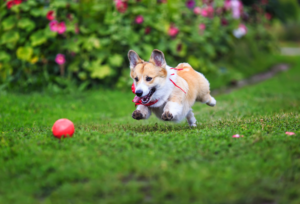
Balls and Fetch Toys: When it comes to outdoor play and fitness, balls and fetch toys are classics. Dogs, in particular, enjoy chasing after balls and playing fetch. This not only provides physical activity but also helps to improve the attachment between the pet and the owner. Cats prefer interactive toys like feather wands and laser pointers that resemble hunting and pouncing, keeping them agile and interested.
- Waste Management and Litter Boxes
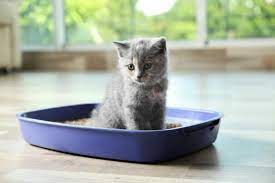
A litter box is an essential item for cat owners since it guarantees a clean and sanitary environment for both your pet and your home. To suit your cat’s demands, it’s critical to consider a few key elements while choosing a litter box:
Size: The size of the litter box is critical. It should be large enough to allow your cat to turn around and eliminate waste in their preferred position. Because cats vary in size, it is critical to select a litter box that is appropriate for your particular feline friend. A spacious box not only gives comfort, but it also lowers the likelihood of litter being kicked out when digging and covering.
Litter Type: There are various varieties of cat litter available, including clumping, non-clumping, and natural choices. Your cat’s preferences, as well as any allergies or sensitivities, should guide your choice of litter. Some cats prefer the texture of their litter, while others may be allergic to specific substances. Experimenting with various varieties will help you identify the one that is ideal for your cat.
Scoop and Liners: Consider useful accessories such as a scoop for collecting waste and liners for easy maintenance to ease the cleaning procedure and maintain a fresh and odor-free litter box. These essential pet products make it easier for you to keep the litter box clean and sanitary, assuring the comfort and well-being of your cat.
- Cleaning and Hygiene Supplies

Cleaning supplies and hygiene are essential pet supplies and consumables, as they are necessary for maintaining a clean and healthy living environment for both you and your cherished pet. Accidents happen, and being prepared with the correct cleaning tools assures a quick and effective cleanup. Here are some of the crucial goods should keep on hand
Note: There might be affiliate links mentioned here. We may receive a commission if you purchase a product through an affiliate link. There is no additional charge for you. Please do your own research before making any online purchases.
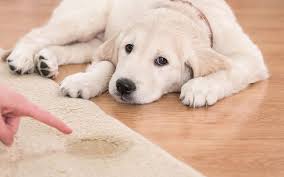
Stain Removal Solutions: Accidents involving pee, feces, or vomit can occur, particularly during the housetraining process or due to illness. Stain and odor removers are developed to efficiently deal with these issues. These treatments not only remove ugly stains, but they also remove scents, stopping your pet from repeating the activity in the same location. Their use aids in the maintenance of a clean and odor-free home, making it a more comfortable environment for both you and your pet.
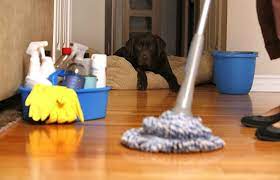
Pet-Friendly Cleaning Solutions: While cleanliness is crucial, you also need to make sure that the cleaning solutions you use are safe for your pet. Pet-friendly cleaning products are carefully designed to cleanse surfaces while posing no health hazards to your pet. These products are free of dangerous chemicals and fumes, making them an excellent alternative for pet-owning households.
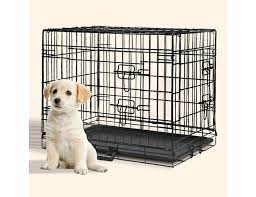
Liners for Litter Boxes and Cages: Liners are a useful addition to the cleaning routine for pet owners who have litter boxes or cages. These liners make cleaning up after your pet easier and more sanitary. They are simple to remove, replace, and dispose of, eliminating the need for periodic scouring and cleaning of the entire litter box or cage.
Pet Care Consumables
Some more essential pet products are listed below.
- Food and Drinks
High-quality pet food and treats are the foundation of proper pet care, and they have a substantial impact on your pet’s general health and well-being. Here are some important factors to consider to ensure that your pet’s dietary requirements are met:
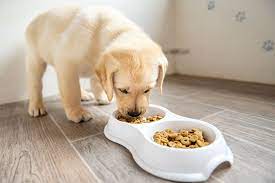
Feeding Schedule: It is critical for your pet’s health to have a consistent and regular feeding plan. This practice not only keeps them at a healthy weight, but it also keeps them from overeating, which can lead to obesity and other health problems. Whether you feed your pet once or twice a day, sticking to a routine gives your pet a sense of security and consistency.

Portion Control: It is critical to determine the proper portion size for your pet. Consult your veterinarian to determine the appropriate portion based on your pet’s age, size, and activity level. Overfeeding can cause weight gain and obesity, while underfeeding can cause malnutrition. The proper portion size ensures that your pet gets the nutrition he or she needs without overindulging.

Treats: Treats are useful for training, bonding, and rewarding your pet. However, it is critical to select sweets properly. Choose nutritious, low-calorie solutions that will not interfere with your pet’s overall diet. Limiting the quantity of treats is critical to avoiding excessive caloric intake, especially if your pet struggles with weight management. Make sure that snacks are only a minor part of their diet and are given as infrequent incentives rather than everyday indulgences.
- Medication and Preventative Measures

Medications and preventatives are essential components of proper pet care, ensuring that your furry or feathery companion is healthy, happy, and safe from a variety of health problems. Here’s a detailed look at some common pet treatments and preventatives:
Flea and Tick Control: Fleas and ticks are more than simply a nuisance; they can spread diseases and make your pet uncomfortable. It is critical to use vet-recommended flea and tick control treatments to protect your pet from these parasites. These items are available in a variety of formats, including topical treatments, oral pills, and collars. Consult your veterinarian to identify the best solution for your pet’s needs, as different animals may have different sensitivities or require different therapies.
Heartworm Preventatives: Heartworm disease can be lethal in pets, so prevention is essential. Heartworm preventatives come in a variety of formats, including chewable tablets and monthly topical treatments. These treatments shield your pet from heartworm infection, and you must administer them exactly as your veterinarian instructs.
Vaccinations: Vaccinations are an important part of preventive care for pets. They defend against common and often fatal infections. It is critical to follow your veterinarian’s immunization schedule to ensure that your pet receives the necessary injections at the appropriate times. Core vaccines, such as rabies and distemper, are required for almost all pets, although non-core immunizations can be tailored to your pet’s individual lifestyle and dangers.
Prescription Medications: If your pet has a medical issue, prescription medications may be required. These may include antibiotics for infections as well as drugs for chronic diseases such as diabetes or arthritis. When providing these medications, always follow your veterinarian’s instructions, including dosages and timing. Adherence to the suggested treatment plan is critical to effectively maintaining your pet’s health.
- Supplements
Supplements are important additions to your pet’s diet since they enhance their overall health and well-being. It’s important to remember that not all pets require supplements, and it’s always a good idea to check with your veterinarian before introducing any new dietary items. Here’s a detailed look at some popular supplements and their possible benefits:
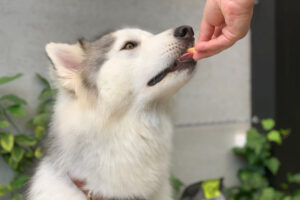
Omega-3 Fatty Acids: Omega-3 fatty acids are well-known for their potential to improve skin and coat health in pets. They are mainly derived from fish oil. Beyond appearance, omega-3s can help regulate inflammation, which is especially helpful for pets with joint problems or certain skin ailments. These fatty acids have been shown to reduce arthritic symptoms and promote a healthy inflammatory response.
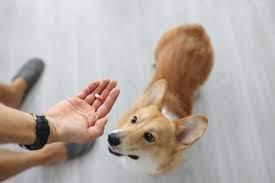
Probiotics: Probiotics are necessary for gut health, which contributes to proper digestion and general wellness. These living microorganisms, which are commonly found in yogurt or nutritional supplements, help to balance the bacterial flora in the gut. Probiotics are especially beneficial for pets suffering from gastrointestinal disorders such as diarrhea or irritable bowel syndrome. They can also help with the negative effects of antibiotics, which can upset the natural balance of gut flora.
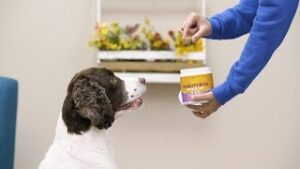
Multivitamin Supplements: Multivitamin supplements are excellent for pets who have dietary restrictions or who do not receive a well-rounded diet. Some pets are fussy eaters, have food allergies, or adhere to strict dietary regimens that limit their intake of important vitamins and minerals. In such circumstances, multivitamins can help bridge the nutritional gap, ensuring that your pet gets the nutrients he or she needs for good health.
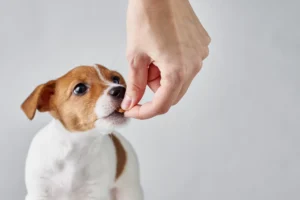
Joint Supplements: Joint supplements are especially beneficial for older pets or those who already have joint problems, such as arthritis or hip dysplasia. These supplements frequently contain chemicals like glucosamine and chondroitin, which promote cartilage regeneration and reduce inflammation in the joints. They can improve your pet’s movement, reduce discomfort, and improve their overall quality of life, particularly in cases of chronic joint disease.
- Hygiene Items
Proper hygiene for your pet is essential for their health, comfort, and overall well-being. Having the correct hygiene products and consumables on hand is critical for keeping your furry or feathered companion clean and healthy. Here’s a closer look at some essential hygiene items to stock up on:

Shampoo and Conditioner: Pet shampoos and conditioners are designed specifically for your pet’s skin and coat type. Using the appropriate products helps maintain the pH balance of their skin, prevents dryness, and keeps their coat healthy and shiny. Bathing your pet on a regular basis not only keeps him or her clean but also provides an excellent time for bonding and relaxation.
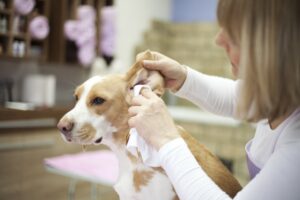
Ear Cleaners: Cleaning your pet’s ears on a regular basis is vital for preventing infections and discomfort. Pet ear cleaners are helpful at removing wax and debris, lowering the risk of ear problems. Regular ear examinations and cleanings help to keep your pet’s aural health in check.
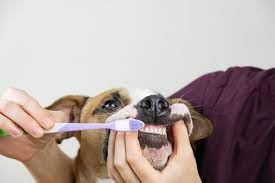
Toothpaste and Dental Chews: Oral health is an important aspect of your pet’s overall wellness. Regular dental care is essential, and this includes brushing your pet’s teeth with pet toothpaste. Dental chews can also be a beneficial addition to their routine, assisting in the reduction of plaque and tartar buildup.

Flea and Tick Preventatives: Flea and tick preventatives are an important part of essential pet supplies and consumables for your pet’s hygiene routine. These veterinarian-recommended medications help protect your pet from parasites that can cause discomfort and transmit infections. It is critical to use these preventatives as prescribed on a regular basis to keep your pet free of infestations.
- Waste Control
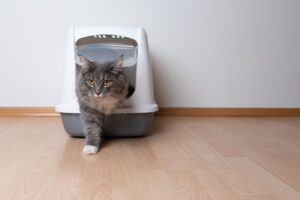
Maintaining a clean and odor-free atmosphere in your home requires effective waste management. The following are essential consumables for this purpose:
Litter: Choosing the appropriate type of litter is critical for cat owners. The litter you choose should reflect your cat’s tastes as well as any special needs they may have, like allergies or sensitivities.
Waste Bags: Dog walkers, in particular, rely on waste bags to clean up after their pets. These bags are essential for keeping public spaces clean and sanitary.
Cleaning Supplies: Stain and odor removers, as well as pet-friendly cleaning products, are essential for keeping your home clean. These supplies help you deal with accidents and messes quickly, keeping your home clean and free of unpleasant aromas caused by pet waste.
- Training Materials
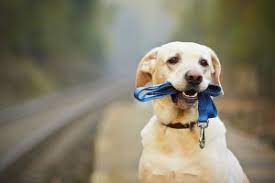
Training tools can help shape your pet’s behavior and provide a good and fruitful training experience. The following are some useful training consumables:
High-value training treats are effective rewards for rewarding positive behavior during training sessions. These rewards are appealing, and they encourage your pet to execute the desired actions or obey directions.
Training pads are extremely handy for housetraining puppies or older dogs that may have an accident now and then. These pads provide a defined and readily cleanable area for your pet to relieve themselves, reducing mess and assisting in the establishment of good potty habits.
Clickers and whistles are tools that are used to signal directives and reinforce positive conduct. They allow you to communicate with your pet in a clear and consistent manner, making training more effective and pleasurable for both of you.
Identification and Microchipping
Microchipping and identification are critical in ensuring that your pet is quickly identified and returned to you if they become lost. Here’s why they’re important:
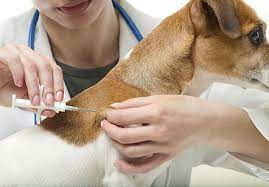
Microchipping: A microchip is a small, permanent identification device that is implanted just beneath the skin of your pet. This chip has a one-of-a-kind identifying number that connects to your contact information in a database. If your pet gets lost and is taken to a shelter or veterinary facility, a short scan of the microchip exposes your contact information, allowing for a quick reunion. Microchips are crucial among the essential pet supplies and consumables. It’s critical to not only get your pet microchipped but also to make sure the chip is registered and your contact information is up-to-date. This added degree of security provides peace of mind, knowing that your pet always has a method of identification with them.
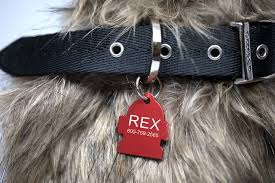
Collar Tags: Collar tags provide a visible and immediately available way of identification. They usually feature the name of your pet as well as your contact information. If your pet is found while wearing a collar with an ID tag, the finder has an immediate means to contact you and arrange for your pet’s safe return. Identification tags are a simple but efficient way to ensure that lost pets are reunited with their owners.
Pet Travel and Safety
Let us elaborate on the essential pet supplies and consumables for traveling with them.
- Pet Carriers and Travel Aids
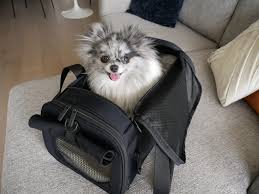
Traveling with your pet necessitates the use of specialist equipment to assure their safety, comfort, and your peace of mind. Here’s a comprehensive look at necessary travel accessories:
Pet Carriers: For safe and stress-free travel, a well-ventilated, secure, and adequately sized pet carrier is essential. Check that the carrier satisfies the size and weight criteria for your mode of transportation, whether by car, airline, or train. To reduce anxiety during travel, familiarize your pet with the carrier before departure.
Travel Crates: Travel crates provide a secure environment for your pet on long travels, particularly those requiring air travel. They are critical for keeping your pet safe, reducing stress, and adhering to flying laws. If you intend to fly with your pet, choose a crate that satisfies international regulations.
Food and Water Containers: Portable food and water containers are extremely useful for feeding and hydrating your pet while on the go. These containers should be spill-proof and easy to clean in order to keep your pet nourished and hydrated while you’re on the road.
Pet Seat Belts and Restraints: Pet seat belts and restraints are essential in the automobile for your pet’s safety and to keep them from disturbing the driver. These gadgets keep your pet safe when traveling, lowering the danger of injury in the event of an abrupt halt or an accident.
- Pet Security at Home
Responsible pet owners prioritize pet safety at home. Taking precautions to pet-proof your living area guarantees that your cherished friend is safe and secure. Consider the following factors while designing a pet-friendly home:
Childproof Latches: Curious pets, particularly cats and certain intelligent canines, may attempt to open cabinets or doors. Childproof latches are useful at preventing children from gaining access to potentially hazardous items such as cleaning solutions or small objects that can be eaten.
Pet Gates: Pet gates are a versatile technique to keep pets out of dangerous areas or out of specified rooms. These barriers are very beneficial for separating regions containing dangerous plants or substances, as well as rooms containing sensitive or possibly harmful things.
Harmful Plant and Substance Awareness: Investigate and identify any harmful plants or substances in your home, then take steps to remove or secure them out of reach of your pet. Lilies, poinsettias, and philodendrons are common toxic plants, whereas hazardous substances can include cleaning agents, human drugs, and small objects that can be swallowed.
Pet-proof garbage cans are vital for preventing your pet from searching through the trash and perhaps eating toxic items. Many pets are attracted to wasted food, which can cause digestive problems or poisoning if the trash contains poisonous leftovers.
FAQs
How do I select the best food and water dishes for my pet?
When choosing food and water dishes for your pet, consider material, size, and cleaning convenience. Stainless steel is long-lasting and bacteria-resistant; ceramic is stylish and solid; and high-quality plastic is a possibility. Choose a size that is appropriate for your pet’s needs, and make sure the bowls are easy to clean and dishwasher-safe.
What are the advantages of using wet pet food, and which pets are best suited to it?
Wet pet food is wet, delicious, and especially enticing to fussy eaters. It’s very important for cats since it keeps them hydrated. Cats frequently do not drink enough water, so wet food can help them stay healthy.
How do I select the appropriate collar, leash, or harness for my dog?
When choosing a collar, leash, or harness for your dog, keep their size, activity level, and training requirements in mind. Collars should be snug but not too tight; leashes come in a variety of forms; and harnesses can be useful, especially for small breeds and dogs with respiratory problems.
What kind of grooming supplies should I get for my pet’s particular coat type?
When selecting grooming products, such as brushes and combs, consider your pet’s coat type. For long, short, curly, or wiry coats, use the appropriate brush or comb. Brushing on a regular basis helps to avoid matting and maintain healthy skin and fur.
Why is microchipping for my pet necessary, and how does it work?
Microchipping provides your pet with a permanent identity. A small chip with a unique identifying number connected to your contact information is put beneath their skin. If your pet gets lost and is brought to a shelter or vet, a simple scan will show your contact information, allowing for a quick reunion.
Conclusion
Caring for your pet necessitates careful consideration of their needs as well as a dedication to supplying the necessary supplies and consumables. A well-prepared pet owner may guarantee their furry or feathery buddy has a happy, healthy, and safe life by providing everything from food and water bowls to grooming supplies, toys, and healthcare equipment.


